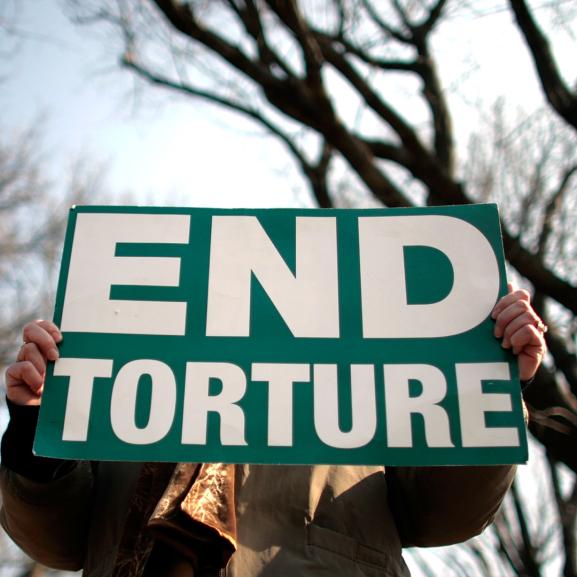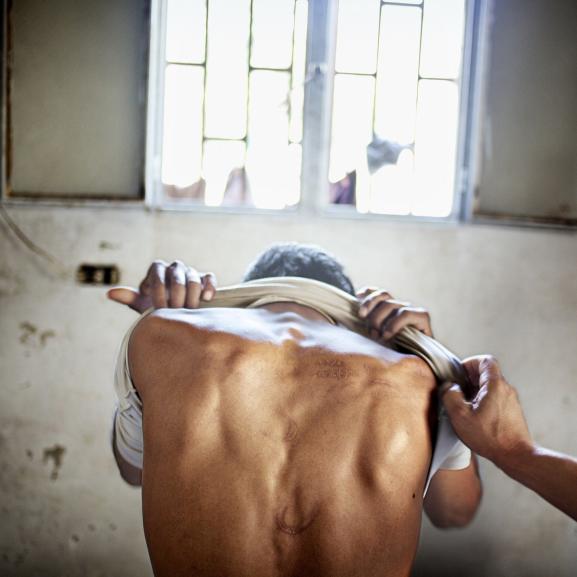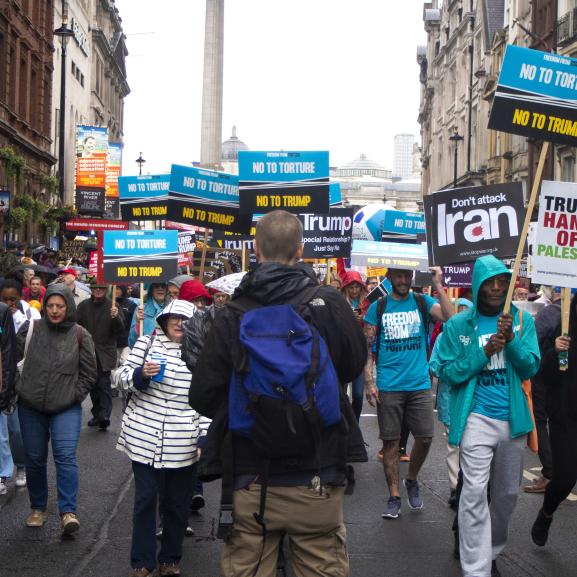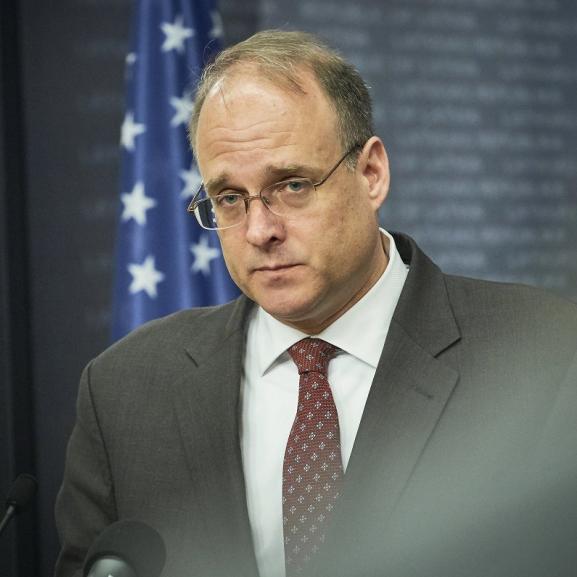Torture team: A new book
The author of a groundbreaking new book which accuses key political and academic figures of legitimising the US Government's practice of torture has commended the expertise of the Medical Foundation for the Care of Victims of Torture in assisting with his investigation.
In Torture Team, reviewed in this month's Vanity Fair, Professor of Law at University College London, Philippe Sands QC, explores who was responsible for a catalogue of human rights abuses during the "war on terror".
The book examines who was behind the 2002 memo in which then US Defence Secretary Donald Rumsfeld authorised interrogation techniques forbidden under international law.
In writing his book, Professor Sands spoke with MF consultant psychiatrist Dr Abigail Seltzer, who has worked with torture survivors for almost a decade. Together they examined the detailed interrogation logs of one of the detainees currently held at Guantánamo Bay, Mohammad Al-Qahtani.
Al-Qahtani's legal team have alleged that he was subjected to techniques banned under the United Nations Convention Against Torture, and defined as torture in US law. After reviewing the logs with Dr Seltzer, which showed that Al-Qahtani suffered sleep deprivation, humiliation, exposure to extremes of temperature and noise, and forced nudity, Professor Sands concluded that the use of those methods could be traced back directly to the 2002 memo.
"I'm hugely grateful to the Medical Foundation for helping me with my book," said Professor Sands. "I believe the work of the Foundation is highly important. The MF is on the frontline, preventing barbarism of this kind."
In the book, the outspoken international human rights lawyer claims to have found a direct link between the rationale pedalled by torture apologists, and the ill treatment of detainees in Guantánamo Bay.
The favoured argument of torture proponents is that of the ticking bomb scenario, which proposes the hypothesis - based on theory rather than any concrete reality - that where a person knows the whereabouts of a bomb that is certain to cause mass human carnage, it would be legitimate to use torture to avert disaster.
The human rights of one person are pitched against the human rights of thousands - an emotionally persuasive argument in the wake of numerous terrorist attacks recently.
The fiercest proponent of this theory in recent years has been Harvard University Law Professor Alan Dershowitz, who claims that as states already torture, to deny that fact is hypocritical and allows them to go unchecked. According to Dershowitz, "torture warrants" - authorising torture in rare circumstances that require proof for its necessity before the event - would reduce the frequency and severity of torture.
Professor Sands said: "Who is to judge when the ticking bomb scenario occurs? The fact that Dershowitz was going around making that argument encouraged people at Guantánamo to believe that what they were doing was the right thing. The mere fact that he was stating that to be the case seems to have contributed to allowing those abuses to occur."
Professor Sands added: "The most powerful way of depicting the horrors of torture, and where it leads, is through individual testimony. The Medical Foundation brings home the facts: this is real and happening to ordinary people right now.
"I cannot overstate the importance of organisations like the Medical Foundation. I strongly support its activities, and encourage others to do the same."
Torture Team: Cruelty, Deception and the Compromise of Law, is published in May by Penguin.





